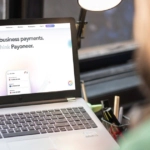How to hire and pay contractors in Guinea
Understand contractor classification and how Payoneer WFM can help you hire contractors in Guinea and pay them legally and efficiently.

The Republic of Guinea, also known as Guinea-Conakry, has over 80% of its workforce self-employed, which is higher than the global average of 40%. This trend also indicates that flexibility, digital connectivity, and cross-border demand are reshaping work culture.
For international companies, integrating Guinea contractors into global teams is often beneficial because many Guinean professionals are familiar with the expectations of project-based work and contract-driven engagements.
This guide helps you understand the process of hiring independent contractors in Guinea, paying them compliantly, so you can expand your workforce with confidence and clarity.
How to hire Guinea contractors
To hire contractors in Guinea legally and efficiently, it’s important to understand how the West African nation classifies workers, what local laws apply to contractor relationships, and more.
This section will guide you through the key steps to hire Guinea contractors in the right way.
1. Understand worker classification
Misclassification of workers is among the most frequent legal traps.
In 2024, a France-based fintech company in West Africa was forced to reclassify 120 of its delivery riders as employees, resulting in total liabilities of USD 1.3 million. The problem started with a poorly written contract that didn’t clearly define the riders as independent contractors.
The case illustrates the importance of having clear contracts that clearly define the scope of work, the contractor’s independence, and other key terms.
Guinea’s labor law, like others, differentiates between employees and independent contractors based on the nature of the relationship.
Here’s how it breaks down:
| Criteria | Guinea Contractors | Employees in Guinea |
|---|---|---|
| Work Schedule | Set their schedules | You can fix their schedule, not exceeding 10 hours per day or 48 hours per week |
| Payment Structure | Project or milestone payments | Monthly wage with potential bonuses |
| Tax Withholding | Pay their taxes | You withhold and pay on their behalf |
| Entitlements | No benefits unless the contract states otherwise | Legally entitled to benefits and protections |
2. Understand Guinea’s independent contractor laws
Guinea’s Labor Code does not have a strict definition of “independent contractor,” but standards are derived from:
- Degree of autonomy
- Lack of subordination
- Service contract with deliverables and terms
See to it that your contracts explicitly state the independent nature of the contractor, scope of work, deliverables, payment, and termination clauses.
More often, repeated instructions, regular working hours, and direction of day-to-day work could lead to reclassification as an employee, resulting in legal and financial repercussions.
3. Find independent contractors in Guinea
The following are some ways to find qualified Guinea contractors:
- Freelance platforms: Upwork, Fiverr, and Toptal for digital professionals
- Referrals: Leverage local business networks or diaspora groups
When selecting candidates for job openings, ensure that credentials, proficiency in a relevant language (such as French), and dependability are verified through checks or test projects.
4. Hire contractors in Guinea from the US
US-based firms can remotely hire contractors in Guinea without establishing a local office. Here’s how:
- Execute a formal independent contractor agreement
- Avoid instructions on how, when, and where the work is performed
- Utilize compliant international payment channels or contractor management services like Payoneer WFM
- Don’t report IRS forms such as 1099 (foreign contractors do not need them); instead, seek Form W-8 BEN
- Maintain records of payments and contracts for audit and due diligence
5. Africanization plan to hire foreign contractors in Guinea
Additionally, Guinea, like many African countries, is pursuing Africanization policies, a program favouring domestic employment in strategic sectors.
Therefore, when you are hiring foreign contractors in Guinea, the following are recommended practices:
- Provide a local workforce development plan to the regulators
- Work with Guinean partners or subcontractors
- Use hiring of foreign experts due to specialized skills that are not locally available
How to pay contractors in Guinea
You need to select the appropriate payment method, comply with local tax regulations, and maintain accurate documentation to pay contractors in Guinea.
Here’s how to go about it:
1. Determine how to pay
Before making your first payment, decide on the most suitable and reliable payment method. Common options include:
- International Bank Transfers (SWIFT): Suitable for large, formal transactions, but often come with high fees and slow processing times.
- Global Payment Platforms or Contractor Management Services (Payoneer WFM): These platforms offer faster, low-cost, and trackable cross-border payments. They also allow you to pay in USD or EUR while your contractor receives the money in Guinean Francs (GNF).
- Mobile Money (e.g., Orange Money, MTN Mobile): Widely used within Guinea, but not recommended for international businesses due to limited integration and traceability.
2. Ensure your Guinea contractors have the right tax information
Even though foreign companies aren’t required to withhold taxes in Guinea, it’s critical to ensure your contractors are registered and paying taxes locally. This protects your company from potential misclassification or tax evasion claims.
Ask your contractor for:
- Tax Identification Number (NIF)
- Proof of business registration or freelancer status
- Ability to issue valid invoices
3. Pay in Guinean Franc or US Dollars
Guinea’s local currency is the Guinean Franc (GNF), but many international clients prefer to pay in USD or EUR to reduce exchange rate risks. Whichever payment method you choose, ensure to factor in the currency exchange rate and conversion fees.
As of mid-2025, the exchange rate is 1 USD = 8,667.82 GNF.
4. Maintain compliant records
Keeping accurate records isn’t just good practice; it’s essential for audits, tax reporting, and legal compliance. Make sure to store:
- Signed contractor agreements
- Invoices and payment receipts
- Bank transaction records or payment confirmations on Payoneer WFM
- Email or message threads confirming work milestones or deliveries
If ever challenged by local authorities (or in the contractor’s jurisdiction), these documents will serve as proof of legal and professional engagement.
Why Payoneer WFM is the easiest way to hire contractors in Guinea
Payoneer Workforce Management (WFM) offers an all-in-one platform for hiring and paying contractors globally, with key benefits for Guinea:
- Onboarding and compliance tools
- Multi-currency payments (USD, EUR, GNF)
- Automated tax documents or form collection
- Local payout solutions that adapt to contractor preferences
- Invoice generation and tracking
You don’t need to worry about misclassification or manual tracking as Payoneer WFM handles the heavy lifting while ensuring you meet legal obligations.
Book your demo today to get started!
FAQs on Guinea contractors
Are Guinea contractor payments reportable to the IRS?
No. U.S. businesses are not required to file IRS forms for non-U.S. contractors based outside the U.S. However, it’s recommended that you collect a signed Form W-8BEN from the Guinea contractor to certify their foreign status for your records.
What is the currency to pay contractors in Guinea?
USD and EUR are widely accepted for international payments, but always verify with your Guinea contractor. You may choose platforms like Payoneer WFM to get the best conversion fees and compliant transactions.
Can I employ foreign nationals as contractors within Guinea?
Yes, but you may need to comply with Guinea’s Africanization laws, particularly in regulated industries such as mining and energy.
Is it secure to pay contractors in Guinea through Payoneer WFM?
Yes. We offer secure, compliant, and transparent payment methods for Guinea-based contractors.
Disclaimer
Nothing herein should be construed as if Payoneer Inc. or its affiliates are soliciting or inviting any person outside the jurisdiction where it operates/is licensed to engage in payment services provided by Payoneer Inc. or its affiliates, unless permitted by applicable laws. Any products/services availability are subject to customer’s eligibility. The availability of this product is not guaranteed and may vary. Not all products/services are available in all jurisdictions in the same manner.
Related resources
Latest articles
-
A guide to starting a business in Estonia as a non-citizen
If you’ve thought about opening a new business somewhere with plenty of government support, expanding your business into the EU, or making it easier to work as a contractor or digital nomad anywhere in the European Economic Area (EEA), you should think about starting a business in Estonia…
-
How to simplify payment operations with Payoneer’s automation feature
Save time, reduce costs, and eliminate errors with Payoneer’s new payment automation feature.
-
How to prevent online payment fraud as an SMB
Prevent online payment fraud by overcoming challenges like phishing, fake accounts, and account takeovers (ATO) with enhanced security features from Payoneer.
-
Amazon Fees & Policy Updates 2024
Amazon regularly makes planned updates to fees and policies that may impact Payoneer customers that sell on Amazon. To keep Payoneer customers informed regarding upcoming and past updates, we’re providing a list of known changes to Amazon fees and Policy updates.
-
How Payoneer’s target exchange rate feature will help you save more on bank withdrawals
Boost savings with Payoneer’s target exchange rate feature.
-
Navigating phishing attacks: A guide to keeping your Payoneer account secure
Keeping your funds safe is our number one priority at Payoneer. While phishing attempts can happen, arming yourself with knowledge is key to keeping your data and money safe














